News

MR attempting to defeat the budget! Wants an election!
Opposition leader Mahinda Rajapaksa appears to be rounding up other parties of the opposition in a bid to defeat the budget brought by the United National Party (UNP) government. According to sources his aim is to defeat the budget and request that a general election should be held.
He is also said to have informed the Sri Lanka Freedom Party (SLFP) that it needs to support this bid if the issues regarding the nominee for the 2020 presidential election is to be resolved.
Reports from the political arena say Rajapaksa has informed President Maithripala Sirisena regarding this as well. However, he is yet to receive a response from Sirisena. Sources say a group from the SLFP are to vote in favour of the budget putting Sirisena in a difficult position leading to his failure to respond to Rajapaksa’s demands.
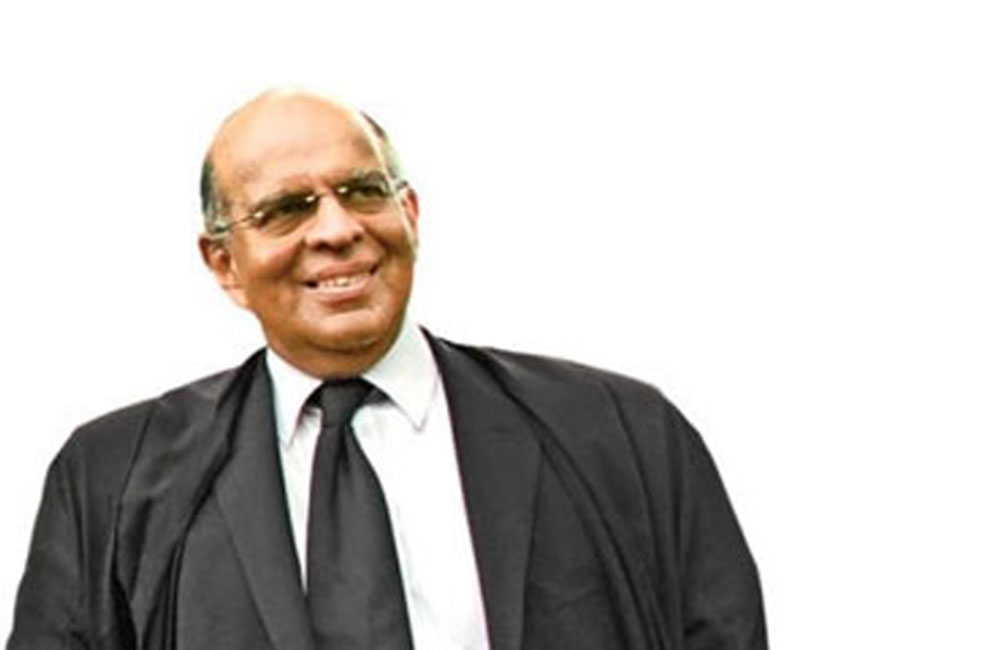
Karannagoda Lawyer Romesh De Silva’s Dirty Tricks: Tells SC Judges AG Is Seeking Promotion To Apex Court
Dirty tricks and high stakes political gamesmanship took centre-stage at the Supreme Court when former Navy commander Wasantha Karannagoda’s fundamental rights petition to prevent his arrest by the CID in the controversial kidnapping and murder case of 11 youths came up for support before a bench of three judges last night.
The court granted final relief after several hours of hearing preventing Karannagoda’s arrest or being taken into custody despite the AG officially announcing that indictments will be framed against the former Navy Commander for his role in aiding and abetting the murder of 11 young men abducted by a ring of naval personnel involved in a ransom racket.
President’s Counsel Romesh De Silva who has become the lawyer of choice for suspects trying to prevent their arrest by law enforcement agencies investigating corruption and violent crimes kicked off his submissions in the Supreme Court on Thursday morning directly accusing the Attorney General of currying political favour in seeking Karannagoda’s arrest.
“It is well known that the Attorney General and the Solicitor General have met the President and asked to be promoted to this very court,” De Silva PC claimed in open court as officials causing ripples in the courtroom.
Legal observers analysed that the remark – reiterated several times – was a badly disguised attempt to prejudice the bench headed by SC Justice Buwaneka Aluwihare.
Justice Aluwihare is a contender for the position of Chief Justice when the incumbent CJ Nalin Perera retires in April 2019. However, the Attorney General can be directly promoted as Chief Justice, overlooking more senior members of the Supreme Court if necessary. AG Jayantha Jayasuriya therefore is also a contender for the position.
“Minutes after that remark you realised that the attitude of the bench seemed to change” a senior lawyer who watched the proceedings told Colombo Telegraph.
This is an attempt to prejudice the judges, the senior lawyer analysed.
Additional Solicitor General Viraj Dayaratne who appeared for the AG refused to respond to the charges but reiterated that the AG had no political interest in pursuing Karannagoda as a suspect. (By Ramani Bulathgamuwa - Colombo Telegraph)
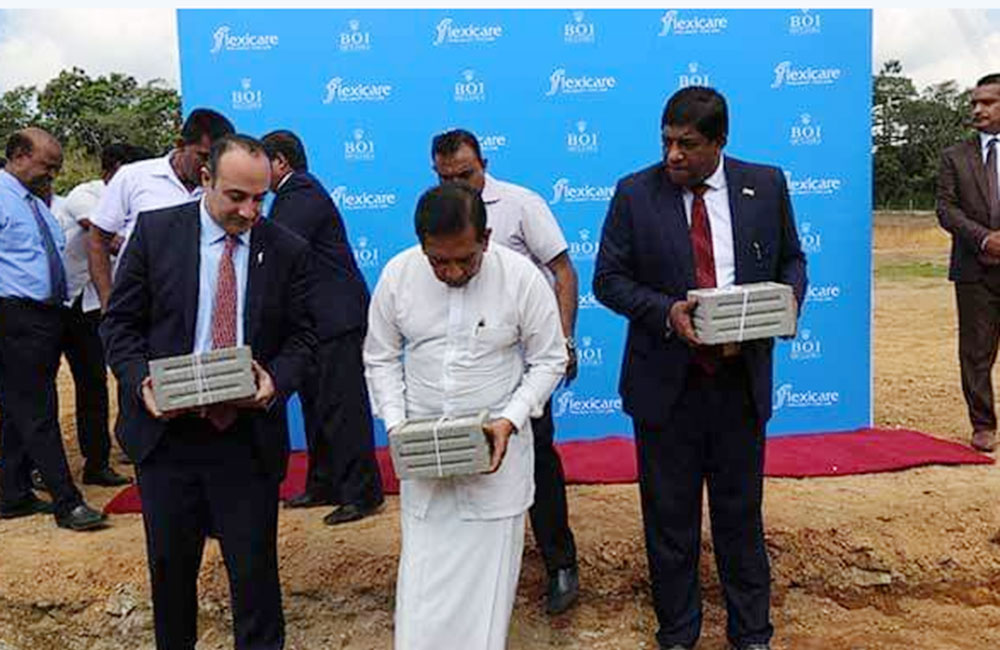
UK's Flexicare launches disposable medical devices manufacturing facility in Bandaragama
Flexicare Lanka (Pvt) Ltd., a fully owned subsidiary of Flexicare Group, UK yesterday launched the construction of a state-of-the-art modern manufacturing facility in Bandaragama with an investment of over USD 10 million which is a Board of Investment of Sri Lanka approved the project.
Flexicare Group UK Managing Director, Hash Poormand together with Minister of Health Dr Rajitha Senaratne and Business Development Minister Ravi Karunanayake laid the foundation stone at a ceremony held on Monday (March 11).
This will be the first time that a fully-fledged facility is to be established for medical consumables and devices with a view to export a significant amount of the products manufactured in Sri Lanka.
It is envisaged that over 90% of the production will be exported bringing in significant foreign exchange to the country, providing employment to 600 employees during full commercialization of the manufacturing site. The local distribution of the products will be managed through their exclusive distributor, Technomedics International Pvt Ltd.
"Our vision today is no different than what it was when we started in 1989. To become the preferred and most trusted healthcare manufacturer for products that enhance patient care. Pioneering and leading the way in airway and respiratory management," Fexicare MD, Poormand said.
"We strongly feel that the project will significantly contribute to the growth of the national economy and help towards the achievement of the government's long term goals relating to 'Vision 2025' for the development of the healthcare sector," he added.
Flexicare, a leading UK manufacturer of medical devices has offices across Europe, the Middle East, India, Far East, USA and Australia and can respond to customers' needs, providing fast and efficient service. (Colombo Page)
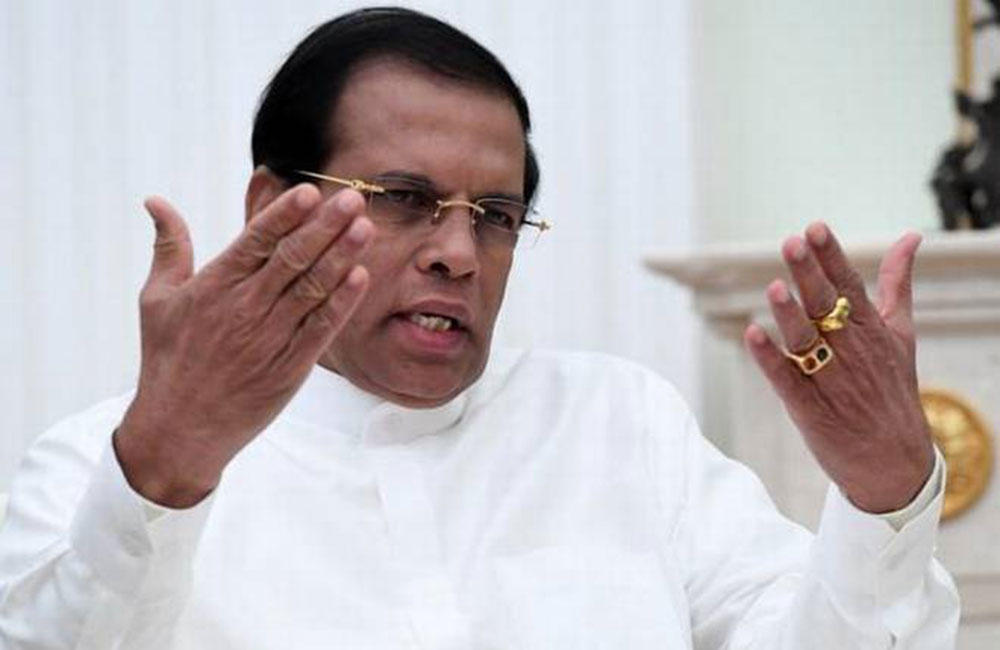
President against Sri Lankan women going abroad to work as maids!
President Maithripala Sirisena said he was against sending Sri Lankan women to the Middle East as housemaids.
Speaking at an International Women's Day event, Sirisena said the rich and the powerful of society are enjoying their benefits owing to the remittances from migrant workers majority of whom are women.
"Even though the migrant domestic workers are the main source earning foreign exchange for the country, the life stories of mothers, sisters and daughters who are engaged in this field are tragic," Sirisena said.
Although Sirisena said he was against sending women to the Middle East as housemaids, he fell short of presenting a viable alternative.
According to the statistics of the Sri Lanka Foreign Employment Bureau, over 500000 Sri Lankan women are currently in the Middle Eastern region working as housemaids. (Asian Mirror)

WhatsApp blocks third-party app users
WhatsApp is now temporarily banning users who use third-party modded version of the app.
Users who are temporarily banned from WhatsApp will get an in-app message informing them of their ban and the only way to have the account unbanned is to switch back to the official version of WhatsApp.
These third-party versions of WhatsApp offer additional features to users, like theming options or emojis.
The FAQ page on the WhatsApp website states that the third-party apps – such as WhatsApp Plus and GB WhatsApp – violate WhatsApp's terms of service and that WhatsApp does not support these apps because they are not able to validate their security practices.
The FAQ suggests that users backup their chat history in the modded app before going back to the official one.

SriLankan Airlines marks International Women's Day with first all-women flight crew
Sri Lanka's national carrier, SriLankan Airlines marked International Women's Day today operating its first all-female crew flight.
The airline tweeted that in recognition of International Women's Day, SriLankan Airlines operated its first all-female crew flight from Colombo to Singapore and return. "The flight UL306 landed in Singapore a short while ago," it said. (Colombo Page)

Vote on the second reading of budget today!
The vote on the second reading of the budget will be held today (12) afternoon in parliament.
Following the presentation of the budget by Minister of Finance Mangala Samaraweera on March 5, the debate on its second reading commenced on the 6th lasting for almost a week. The vote on it will be called at 5pm today.
The third reading of it will commence tomorrow and will last till April 5.
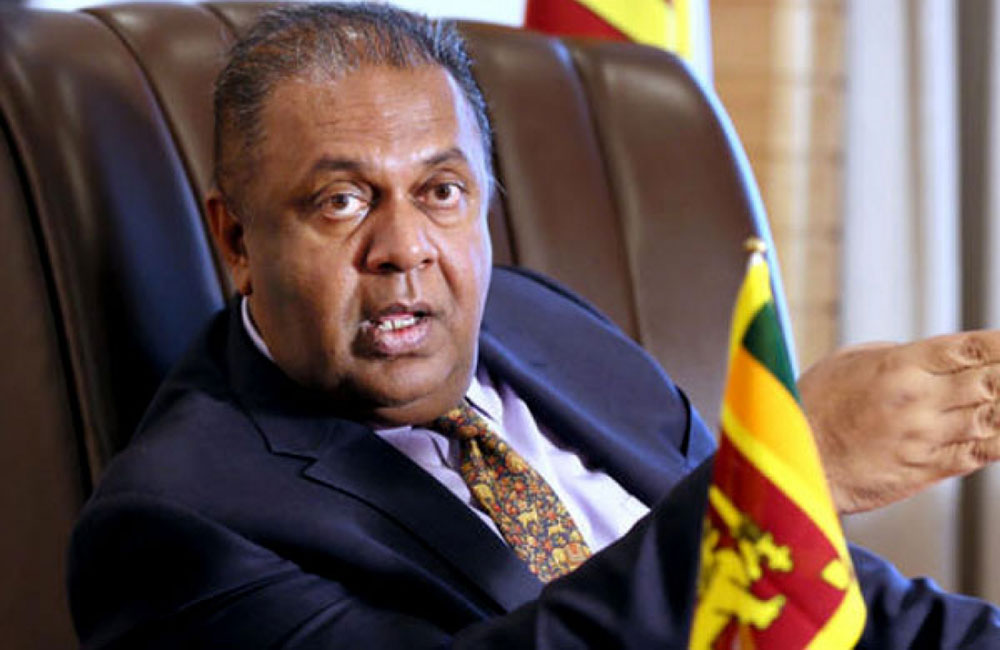
Internal opposition to Mangala’s proposal against Naval mafia!
Finance Minister Mangala Samaraweera’s proposal and the UNF government’s attempt to change the existing laws to facilitate modern requirements in goods exchange and naval trade and break the monopoly in the naval trade, has been vehemently opposed by several parties within the government, reports say.
This has caused the Finance Minister disgruntlement, according to internal sources.
The proposals in his 2018 budget to pave the way for foreign investment into the naval industry and develop it and appoint an independent ports regulator, has been challenged by two companies involved in the naval trade and have spent a fortune in order to create opposition from within the government.
The former Ports and Shipping Minister Mahinda Samarasinghe had also vehemently opposed Samaraweera’s proposal.
'Lanka News Web' had earlier reported that two companies dominating the naval trade is initiating political pressure against the efforts taken by the government to demolish this monopoly.
The website further stated that both of these companies had been closely involved with the former Rajapaksa regime and had funded their political campaigns.
Now an UNF government!
However, in presenting the budget 2019, Finance Minister Mangala Samaraweera referred to the budget proposals as the first ‘UNF’ budget.
He also referred to the budget 2019 as the ‘first UNP budget’ during a media briefing held at the Finance Ministry yesterday.
He further said, “Now there is no one within the government to oppose the measures taken by the government to bring down the monopoly by just a few in the naval and shipping trade. This is now a United National Front Government.”
These companies engaged in the monopoly of the naval trade, is said to have pumped millions of dollars into the political campaigns of several leading political parties in the country.
Marikkar to the fore against the mafia!
Meanwhile, MP- S.M. Marikkar said that as the naval trade is dominated and monopolised by only two companies, it should definitely be opened out to others and this monopoly should be broken.
He noted that his ;party would give their fullest support to the proposal brought forward by Finance Minister Mangala Samaraweera in his budget to open up the naval trade to foreign investors and establish an independent ports regulator.
Marikkar noted that it was the government’s stance to relax the ocean trade industry and develop the business sector.
(Sri Lanka Mirror)

No change in fuel prices!
Though fuel prices were to be amended last night (11) Ministry of Finances say it is unlikely to be amended this month.
According to the pricing formula introduced, which sees the prices of fuel being revised on the 10th of every month, it was due to be amended yesterday as the 10th was a public holiday.
Sources say the pricing committee has decided the fuel price does not need to be revised this month. Therefore according to government reports criticism against the pricing formula at the time of inception were made to paint the government in a bad light.
However, ministry sources say the aim was to implement a policy which can benefit the people immediately and was not taken to cause any issues to the public.

Tax on children's savings accounts will only affect 'kid millionaires'
Officials from the Ministry of Finance confirmed today that reports alleging the UNF government’s efforts to tax children’s savings accounts in an unfair manner are false.
They point out that a withholding tax of 5% will be imposed only if the interest income from savings exceeds Rs. 5000. A senior ministry official said that one should have at least Rs. 1.2 million to get an interest income of Rs. 5000. If one is making an interest income of Rs. 6000 for instance, that person will be only subject to the 5% withholding tax on the additional Rs.1000 as the tax-free limit is Rs. 5000, they added.
Furthermore, the official said that a vast majority of children’s savings accounts in the country do not fall under this category and that this would only affect the savings accounts of ‘child millionaires’.
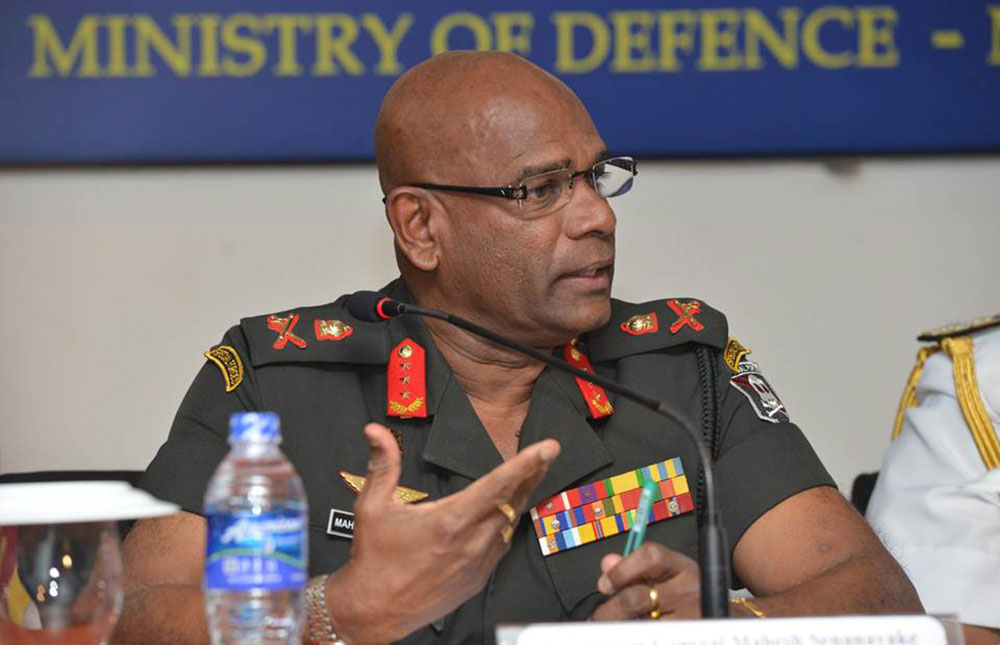
Army ready to deal with drug dealers: Commander
Lieutenant General Mahesh Senanayake, Commander of the Army, said that they are ready to wage the war on drugs.
“Once legal provisions would give coverage to us as envisaged, the Army is ready to apprehend peddlers of narcotics and addicts and to launch operations with other law enforcement authorities, identical to how we finished off LTTE terrorism ten years ago,” Lieutenant General Senanayake said this morning (8) during a Media conference, held at Kollupitiya Media Centre of the Ministry of Defence, presided by the Chief of Defence Staff and flanked by tri-service Commanders.
To be in line with president Sirisena's directive for an all-out national ‘war’ against all varieties of illegal drugs, now fast spreading to many corners of the island, the Presidential Task Force has sought the active contribution of the tri-forces to tackle the devastating menace in cooperation with the Police and the Special Task Force.
Chief of Defence Staff, Admiral Ravindra Wijegunaratne, Army Commander Lieutenant General Mahesh Senanayake, Navy Commander Vice Admiral K.K.V.P.H De Silva, Air Force commander Air Marshal Kapila Jayampathy and Military Spokesman Brigadier Sumith Atapattu addressed the press conference.
“Currently, the Army at different levels, is helping the Police, STF, National Committee on Dangerous Drugs, Excise Department officials since the use of narcotics has now become a social stigma and a baffling problem. Nearly 1/3 of our low-income families have fallen prey to this social evil. We are presently conducting awareness programmes, recruiting volunteers to empower existing drug prevention committees at village levels, in addition to different training modules we have already introduced. We support this drive by exchanging intelligence with other agencies as well,” he added.
The Army has consented to launch rehabilitation courses (1 year-long) at the Kandalkadu and Senapura rehabilitation centres and would engage in rehabilitation efforts of addicts once they are released from prisons in consultation with the Ministry of Defence and the Ministry of Justice.
The Navy has also taken an active role despite being faced with many challenges and has been responsible for the arrest of many drug peddlers in the past 4-5 years.
Similarly, the Air Force carries out regular air missions focusing on specific jungle areas where cannabis is grown while helping law enforcement authorities to destroy such cultivation. The Chief of Defence Staff in his interaction explained how closely the armed forces are working with international stakeholders for the same cause and stated that they continue to exchange vital information with their foreign counterparts in their efforts to fight the war on drugs.
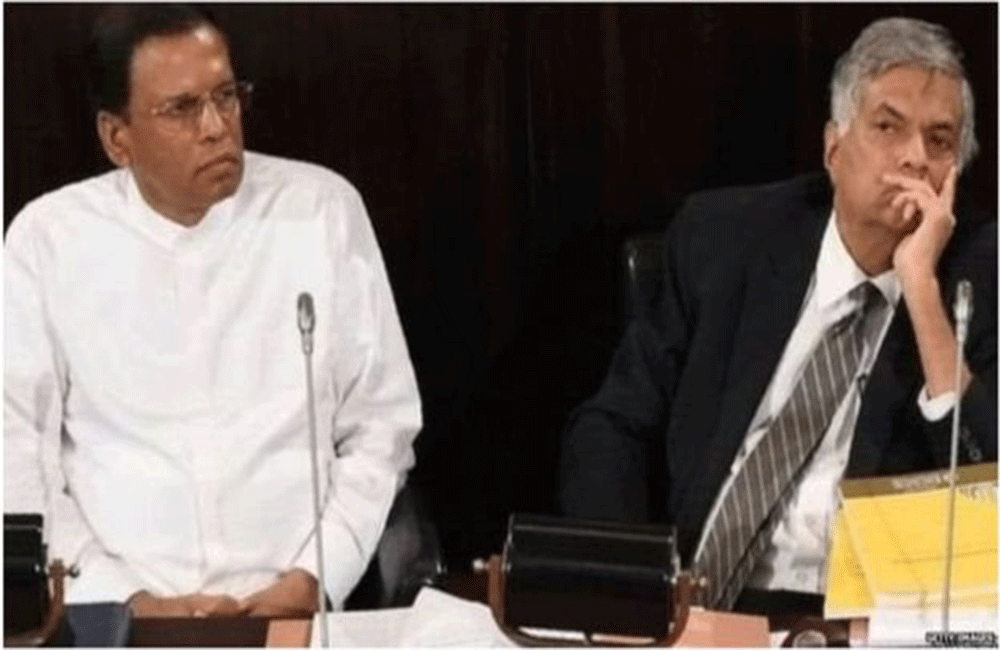
October Conspirators back at work!
Political reports are rife that there are attempts to defeat the 2019 Budget presented by Minister Mangala Samaraweera in order to topple the United National Party Government.
According to sources, the conspirators are attempting to defeat the budget vote and establish a caretaker government.
It is said the same individuals behind the October 26 coup are behind these attempts and are currently in discussion with various parties who are part of the government in order to gain their support.
Sources say the group suspect the people will be favourable to the budget presented and therefore have estimated the situation will be unfavourable for them in the future.
Page 507 of 682